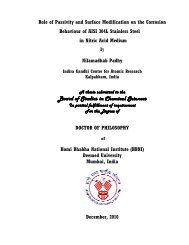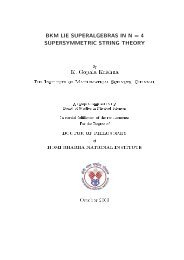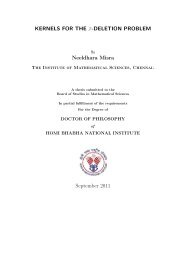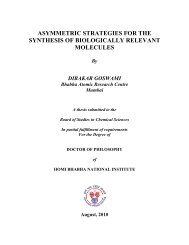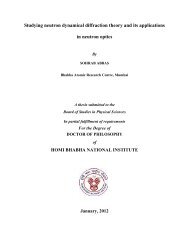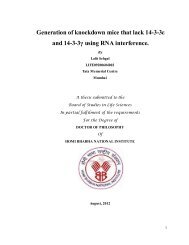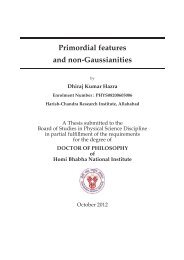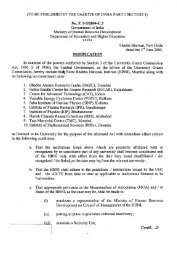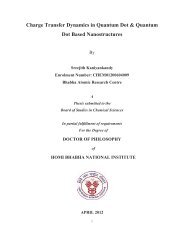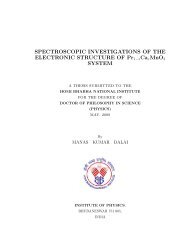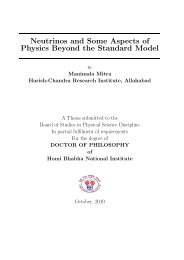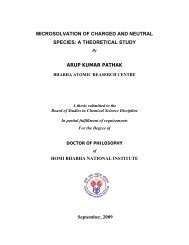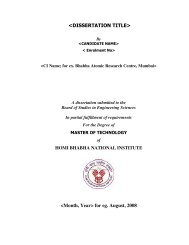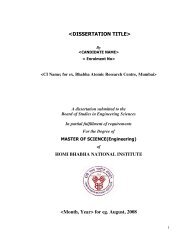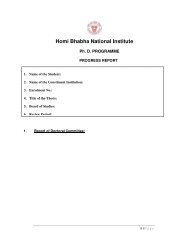LIFE09200604007 Tabish - Homi Bhabha National Institute
LIFE09200604007 Tabish - Homi Bhabha National Institute
LIFE09200604007 Tabish - Homi Bhabha National Institute
You also want an ePaper? Increase the reach of your titles
YUMPU automatically turns print PDFs into web optimized ePapers that Google loves.
Summary and Conclusions<br />
Statistically significant differences were observed for all the phenotypic<br />
responses between the MPN and control groups implying that parameters such as DNA<br />
repair, apoptosis and cell cycle delay might potentially be useful in identifying<br />
susceptibility to UADT MPN. Distinctive polymorphism based G score signature was<br />
also significantly different in the two groups where MPN patients displayed high G<br />
score as compared to controls. A significant correlation was also observed for a group<br />
of SNPs with intermediate phenotypes. Thus, the most important finding of this study<br />
was the correlation between genotype - phenotype, which supports our hypothesis that<br />
variations in important genes may alter phenotypic response and contribute to MPN<br />
risk. Identification of distinctive polymorphism based G Score signature that can<br />
differentiate the study participants into two separate subsets, and its correlation with<br />
various phenotypic effects (indicating a gene-environment interaction) may have an<br />
important bearing on predisposing an individual to UADT MPN development.<br />
The significance of this study lies in the fact that it guides us in identifying<br />
high risk individuals thus increasing the possibility of identifying cohort of patients of<br />
clinical relevance for chemo preventive studies. This study can be considered as an<br />
encouraging pilot study for understanding UADT MPN pathogenesis and in future the<br />
assays may be validated and applied in larger epidemiological studies.<br />
148



